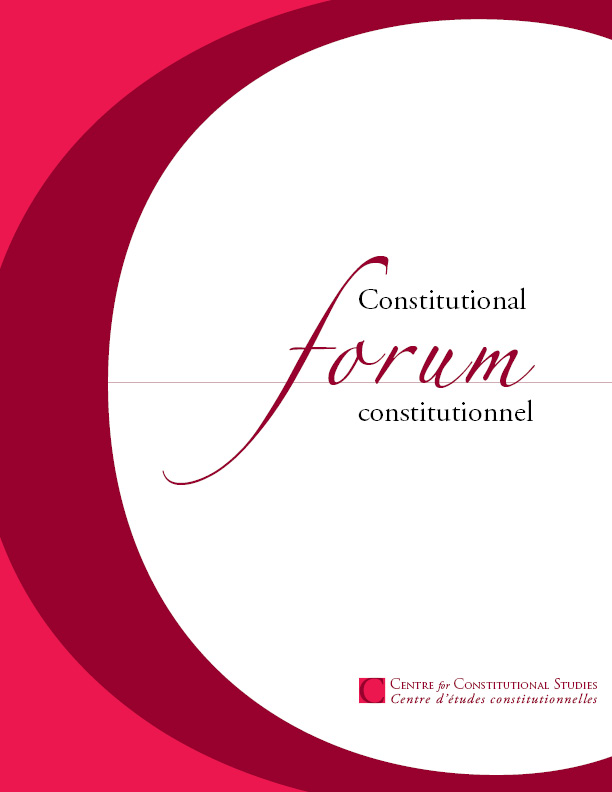Charter Injunctions, Public Interest Presumption, and the Tyranny of the Majority
DOI:
https://doi.org/10.21991/cf29393Abstract
Quebec’s Bill 21, which seeks to restrict employees in its public service from displaying religious symbols at work, has attracted a number of constitutional challenges. In one of those challenges, Hak v Quebec (Attorney General), the plaintiffs sought an injunction suspending the operation of parts of Bill 21 pending a decision on the merits.1 Both the Quebec Superior Court and the Quebec Court of Appeal declined to issue an injunction. The majority of the Quebec Court of Appeal found that in enacting Bill 21 the legislature must be presumed to have acted in the public interest and, as such, the third part of the injunction test — balance of convenience — could not be satisfied.
The idea that Parliament and provincial legislatures must be presumed to be acting in the public interest — what I will call the public interest presumption — is problematic in Charter cases concerning constraints of fundamental rights and the treatment of minorities. Parliament and provincial legislatures are majoritarian institutions; they are the product of elections where the candidates and parties with the most votes win. A core objective of the Charter is to protect minorities from being oppressed by the majority. Giving too much weight to a majoritarian conception of the public interest in interlocutory injunction applications concerning minority rights undermines the Charter and negates injunctions and stays as elective remedies, particularly where an applicant establishes real harm. To fulfill the Charter’s mandate to protect minority rights it must be recognized that the government does not have a monopoly on representing the public interest and that a majoritarian conception of the public interest cannot control the outcome of the balance of convenience test in the face of evidence that other aspects of the public interest are harmed by the impugned legislation. This short article argues for a much weaker public interest presumption: one that may be rebutted by an applicant adducing evidence of harm to an identifiable group.
1 Hak c Procureure Générale du Québec, 2019 QCCA 2145 [Hak].
Downloads
Published
Issue
Section
License

This work is licensed under a Creative Commons Attribution-NonCommercial-NoDerivatives 3.0 Unported License.
Authors who publish with Constitutional Forum constitutionnel grant the journal the right of first publication, and agree to license the work under an Attribution-NonCommercial-NoDerivs (CC BY-NC-ND) that allows others to share the work for non-commercial purposes, with an acknowledgement of the work's authorship and initial publication in this journal, as long as no changes are made to the original work. Please use this format to attribute this work to Constitutional Forum constitutionnel:
"First published as: Title of Article, Contributor, Constitutional Forum constitutionnel Volume/Issue, Copyright © [year], Publisher"





